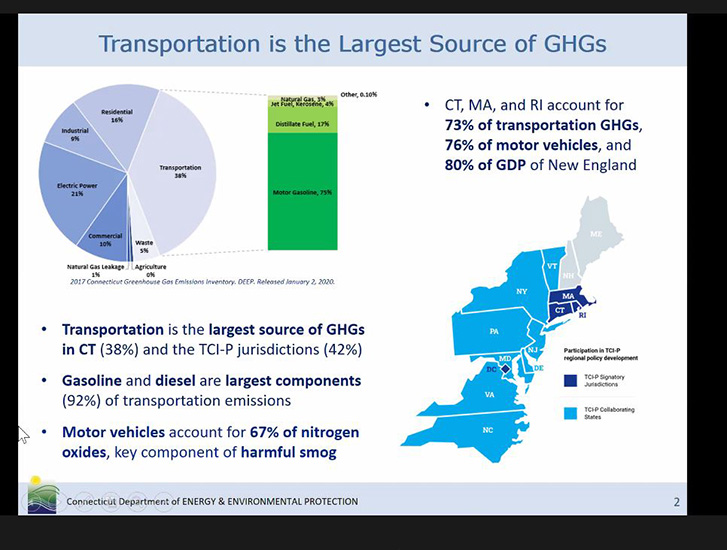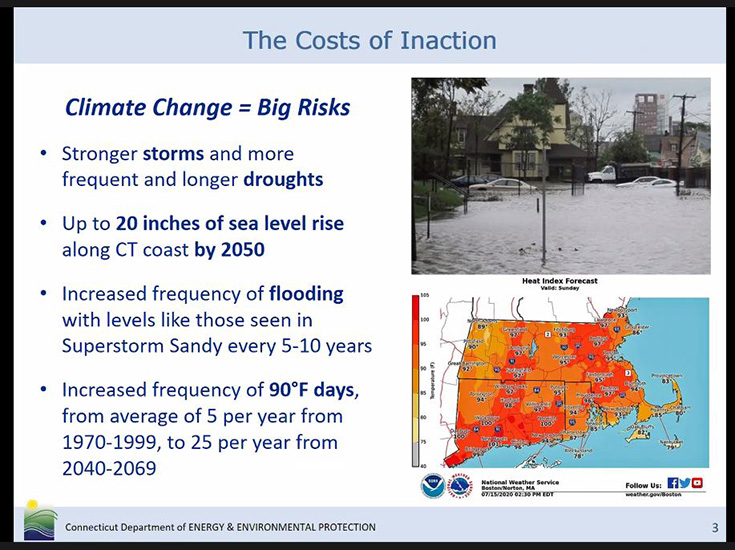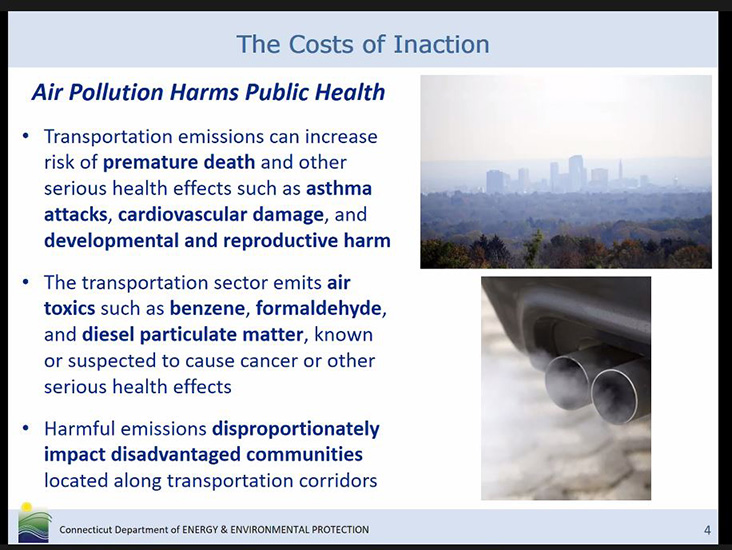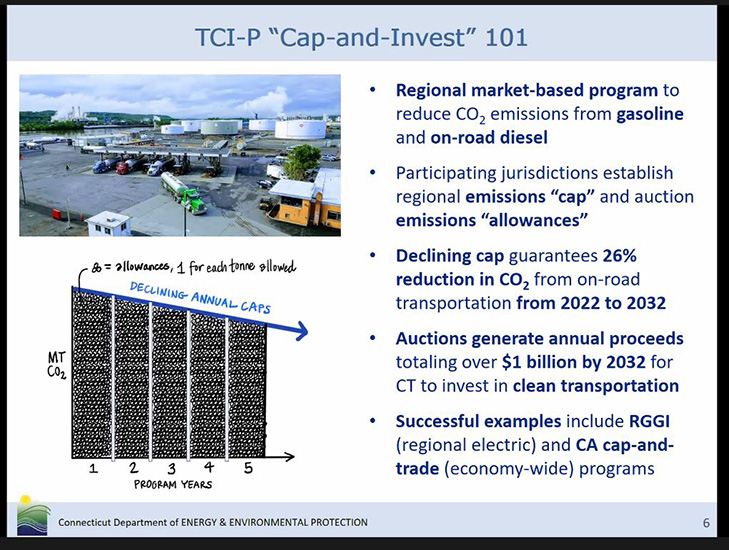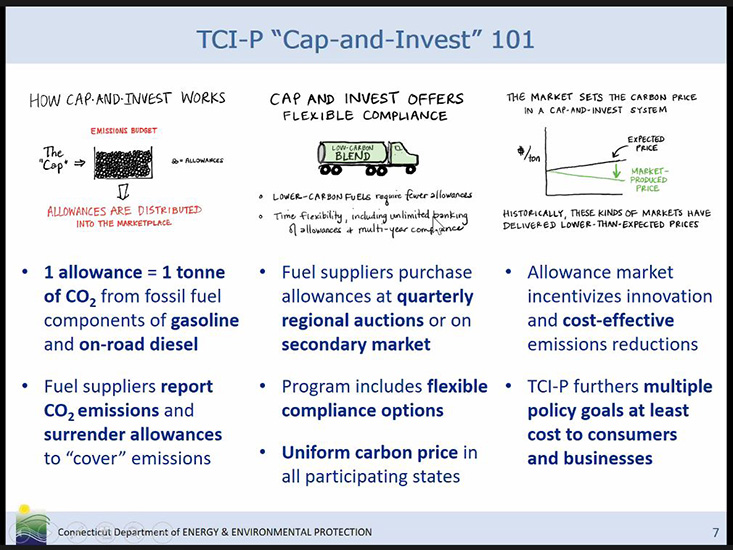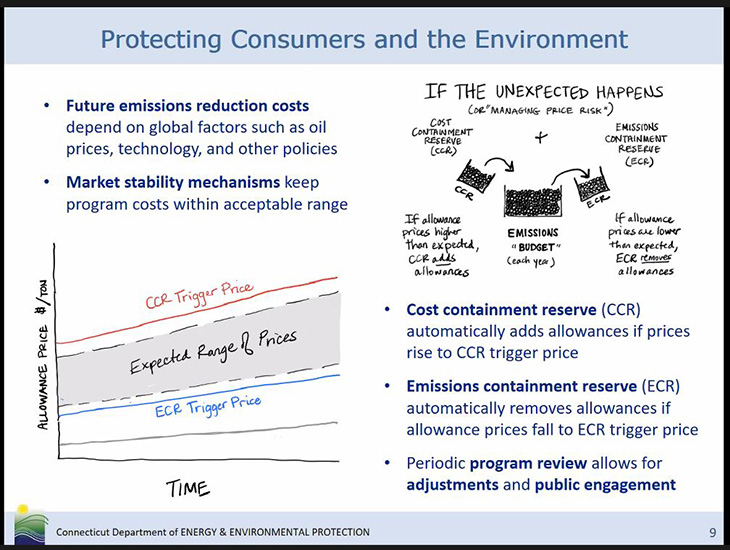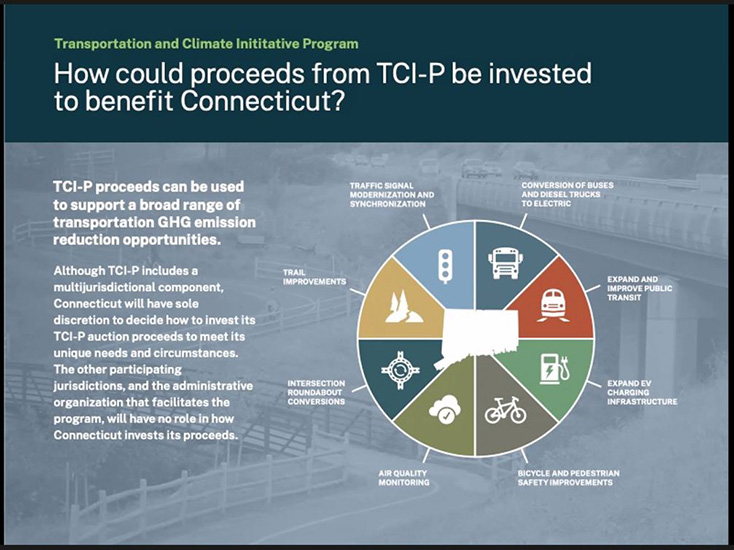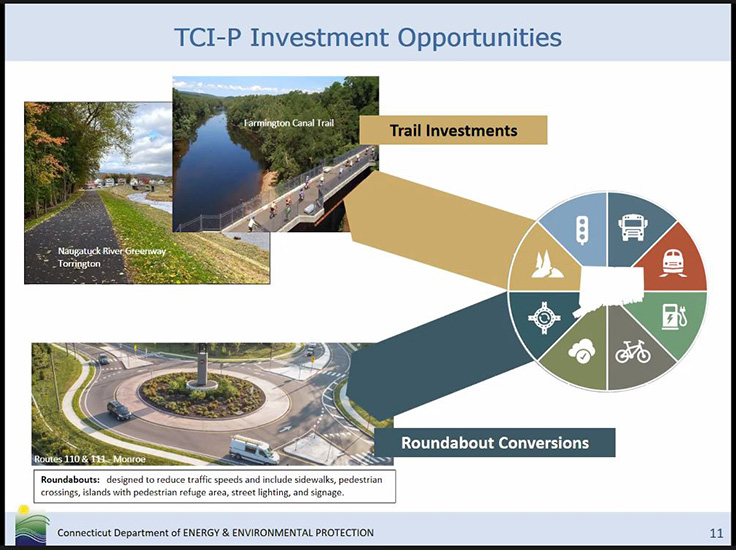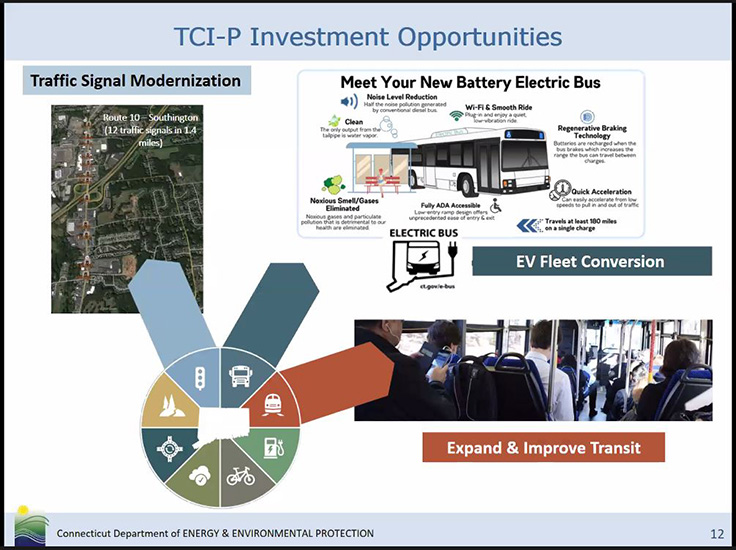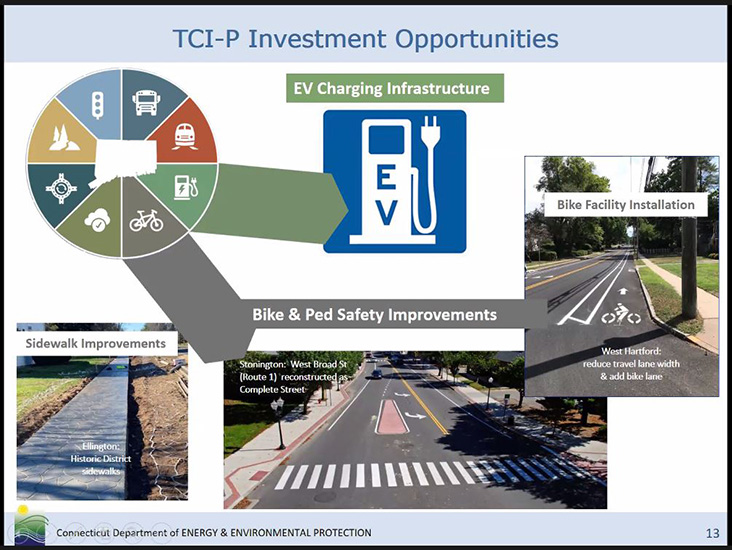- Apply
- Visit
- Request Info
- Give
State energy, transportation officials share climate change plans with Eastern students
Commissioners Dykes and Eucalitto explain TCI-P
Written by Michael Rouleau
Published on April 29, 2021

The Connecticut Department of Energy and Environmental Protection (DEEP) and the Department of Transportation (DOT) hosted an exclusive webinar for Eastern students on April 26 to share information on new initiatives meant to address climate change.
Led by DEEP Commissioner Katie Dykes and DOT Deputy Commissioner Garrett Eucalitto, the talk focused on the Transportation and Climate initiative Program (TCI-P), a regional collaboration meant to curb greenhouse gas emissions and fund a more sustainable transportation system.
The event came days after Earth Day when President Joe Biden announced a more ambitious target for the United States to reduce its net greenhouse gas emissions by 50–52 percent below 2005 levels by 2030.
“We know the impacts of climate change are already here; we’re already experiencing them,” said Dykes, referring to increasing rates of flooding, heat waves, severe storms and droughts. “Our kids are going to be the ones living with these impacts the longest, so it’s important we see better leadership on climate.”
After pointing out two new pieces of state legislation — Senate Bill 882 and House Bill 6441 — which concern climate change mitigation, adaptation and home energy affordability, the conversation shifted to the TCI-P.
The historic regional collaboration so far includes Connecticut, Massachusetts, Rhode Island and Washington, D.C., whose governors and mayor have each signed a memorandum of understanding (MOU) to work to implement the TCI-P in their respective jurisdictions. The program aims to cap and reduce greenhouse gases from the transportation sector and accelerate investments in a more equitable, clean and resilient transportation system.
The commissioners explained that the cap would be enforced by DEEP as a regulatory requirement on suppliers at the wholesale level — not on gas stations or consumers.
According to Eucalitto, selling credits to suppliers at auction will generate $1 billion for Connecticut by 2032, with the funds going to projects such as expanding bus and rail service, converting mass transit fleets to electric, expanding electric vehicle charging infrastructure and installing bicycle lanes for more “complete streets.”
Further, 50 percent of funding would go to projects in overburdened areas, such as urban communities that are disproportionately affected by air pollution due to vehicular traffic. “These vulnerable communities experience the impacts first and worst,” said Dykes.
Speaking to the types of projects to be funded, Eucalitto said, “Too often the conversation is about fixing bridges and highways. But what is the future of transportation in Connecticut and how can we make it cleaner and safer and more accessible for all community members?” He added that improving transit and making communities bikeable and walkable is key for attracting residents and increasing quality of life.
Opponents of the TCI-P argue that it will result in consumers having to pay more at the pump. “If you’ve been to a gas station lately, you’ve heard ads run by the oil industry suggesting gas prices will increase by 17 cents,” said Dykes. “Not true. Misinformation.”
The commissioners contend that even if suppliers were to pass on 100 percent of the cost of credits onto gas stations, and then gas stations onto customers, the price increase at the pump would not exceed 5 cents in 2023.
“The way we achieve emissions reduction is not by deterring consumers from buying gas,” said Dykes, adding that a 5-cent increase on gas is too low to drive that sort of behavior change. “It’s in how we spend the dollars raised by the program ... The cost of climate change far exceeds the potential cost of this program at the pump.”
During the Q&A portion of the event, students asked what they can do to reduce greenhouse gas emissions. Dykes emphasized they need to get involved with government. “While there’s a lot that we can do individually, the real change is getting involved with the legislative process. Let legislators know this is important to you. They especially listen to youth. Number two, bike, use public transit, take a home energy audit on the EnergizeCT website to learn about energy-saving measures.”
For those in the market for a new car, the commissioners gave a plug for electric vehicles, saying there are rebates available. “Be open to new technologies and experiences; this is key in addressing this climate crisis.”



